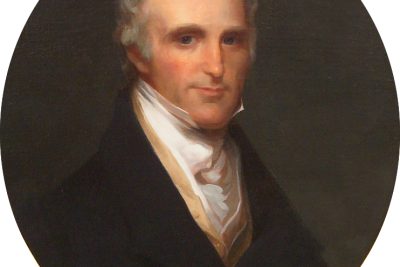
Heroes Unleashed: An Ultimate List of Iconic Superheroes
Superheroes have captivated audiences for generations, with their remarkable feats of strength and unwavering commitment to justice. These heroes often embody the ideals of courage, perseverance, and morality, making them relatable figures in a world that can often seem chaotic. The stories of these caped defenders showcase not only their physical capabilities but also their internal struggles, creating a complex narrative that resonates deeply with fans. As we embark on this journey through the world of superheroes, we will uncover their origins, evolution, and the impact they have had on society, all while celebrating the heos who have inspired countless individuals.
From the moment Superman soared onto the pages of comic books in 1938, the superhero genre has continuously evolved and adapted, reflecting the changing cultural landscape. The vibrant art and storytelling of superheroes not only entertain but also challenge societal norms, providing a lens through which we examine our own world. The joy of reading superhero comics, watching films, and consuming various forms of media allows us to escape reality, even if just for a moment, into a realm where heroes are born and battles for good prevail. This comprehensive article will offer an ultimate list of iconic superheroes, their origins, the impact of major comic franchises like Marvel and DC, and how the genre has transformed over time.
- The Origins of Superheroes: A Mythical Journey
- The Dawn of the Comic Era: Superman and His Legacy
- Evolution of the Superhero: From Comics to Cinema
- Iconic Superheroes Across Time: A Cultural Phenomenon
- The Superhero Archetype: Traits and Characteristics
- Major Comic Franchises That Shaped the Genre
- The Rise of Female Superheroes: Breaking Stereotypes
- Diverse Heroes: Celebrating Representation in Comics
- The Impact of Superheroes on Modern Society
- Conclusion: The Ongoing Legacy of Superheroes
The Origins of Superheroes: A Mythical Journey
The concept of superheroes originates from ancient folklore and myths where heroes were often depicted as demi-gods or exceptional individuals with extraordinary abilities. Figures like Hercules, Achilles, and Thor showcased physical strength, bravery, and a sense of duty that echoes in modern superhero narratives. These early heos not only fought for their personal glory but also embarked on quests that usually served a greater good, establishing a strong moral framework that would influence later portrayals of superheroes.
The transition from these mythical figures to the modern notion of a superhero occurred with the advent of the comic strip in the early 20th century. The blend of artistic storytelling and vibrant character design made comic strips a very effective medium for storytelling, leading to the birth of iconic characters who would define the genre. The hero archetype was starting to take shape, defining expectations and characteristics we now associate with superheroes. Their creation was not just a reflection of pop culture but also a response to the societal issues of the time, showcasing how these heos represented the hope and aspirations of the people.
The Dawn of the Comic Era: Superman and His Legacy
The release of Superman in June 1938 marked a monumental turning point for the superhero genre and is often credited with ushering in the Golden Age of Comics. Created by writer Jerry Siegel and artist Joseph Shuster, Superman introduced the world to a hero who wasn’t just powerful but was also virtuous and morally upright. He became a symbol of hope, particularly during the tumultuous years leading up to World War II, representing the ideals of justice and freedom that resonated with a war-torn society.
Superman’s influence opened the floodgates for a plethora of superheroes, each with their own unique set of powers and characteristics, but often following a similar moral compass. Characters like Batman, Wonder Woman, and Captain America emerged during this time, each contributing to the expanding universe of comic book heroes. These heos not only entertained but also tackled real-world issues, providing readers with characters who mirrored their own struggles and aspirations. Many of these characters continue to evolve, maintaining their relevance to each new generation of fans.
Evolution of the Superhero: From Comics to Cinema
The transition from comic books to the silver screen marked another crucial chapter in the journey of superheroes. Beginning in the 1950s and gaining further momentum in the 2000s, films adapted from comic books have shaped the landscape of modern cinema, elevating the status of heos to global icons. The first notable adaptation was the Superman film in 1978, which redefined superhero movies and set the tone for future adaptations.
With the advent of advanced special effects, the scope of superhero films widened significantly, allowing filmmakers to bring the fantastical elements of comic book narratives to life. The Marvel Cinematic Universe (MCU), initiated with "Iron Man" in 2008, and the DC Extended Universe (DCEU), beginning with "Man of Steel" in 2013, have solidified the superhero genre’s dominance in the film industry. These cinematic universes have introduced a diverse array of heroes and intricate storytelling that deepens the character arcs, making it easier for fans to connect with them.
Iconic Superheroes Across Time: A Cultural Phenomenon
Throughout the decades, certain heroes have emerged as cultural icons, transcending the boundaries of comic books and films to become symbols of hope, courage, and resilience. Characters like Spider-Man, Iron Man, and Black Panther have showcased the evolution of what it means to be a superhero in today’s world, often reflecting contemporary societal issues through their narratives.
- Spider-Man: Created by Stan Lee and Steve Ditko, he encapsulates the struggles of adolescence while emphasizing that with great power comes great responsibility.
- Iron Man: A playboy billionaire turned hero, his journey mirrors the complexities of modern technology and personal redemption.
- Black Panther: Not only a superhero but also a representation of African culture, addressing themes of responsibility to one’s community.
The cultural impact of these heos reaches beyond entertainment, as they inspire real-world change and activism. Their portrayals have sparked conversations around social justice, mental health, and diversity, encouraging fans to become advocates for the causes that resonate with them.
The Superhero Archetype: Traits and Characteristics
The archetype of a superhero is defined by certain traits and characteristics that set them apart from ordinary individuals. These heroes often possess superhuman abilities, a strong moral compass, and a relentless drive to protect the innocent. Their narratives typically emphasize themes of sacrifice, personal growth, and resilience, ultimately presenting a character that is not only formidable but also relatable.
Common characteristics associated with superheroes include:
- Superhuman Abilities: Whether it’s enhanced strength, agility, or intellect, these abilities set heos apart.
- Moral Code: Many heroes follow a strict code of ethics, guiding their actions and decisions.
- Secret Identities: The concept of a dual identity allows them to protect their loved ones while being able to fight crime.
- Relatable Challenges: Despite their powers, superhero stories often explore personal struggles, making them relatable to readers and viewers.
This archetype remains flexible, adapting to the evolving cultural landscape while maintaining the core principles that define what it means to be a superhero. This ability for adaptation has allowed heroes to evolve with the times while remaining in touch with the hearts of their audience.
Major Comic Franchises That Shaped the Genre
The superhero genre is heavily influenced by major comic book franchises that have helped shape its trajectory. Two of the most significant on the scene are Marvel Comics and DC Comics. These publishing houses have dominated the comic book landscape and introduced a multitude of iconic characters that have left a lasting impact on pop culture.
DC Comics, established in the 1930s, introduced characters like Superman, Batman, and Wonder Woman, laying the groundwork for the superhero archetype. Each of these characters not only showcased compelling powers but also deeper narratives rooted in mythology, morality, and societal norms.
In contrast, Marvel Comics, founded in the late 1930s, revolutionized the genre with a focus on character development and realistic portrayals. Marvel’s heroes, like Spider-Man and Iron Man, often face personal challenges, making them relatable and appealing to readers. The interconnected universe of Marvel has allowed fans to see crossover stories, creating a rich tapestry of adventure that keeps audiences engaged.
The Rise of Female Superheroes: Breaking Stereotypes
Historically, the superhero genre has been criticized for its lack of female representation. However, the landscape is gradually shifting as more female heroes are being highlighted in both comics and films. Characters like Wonder Woman, Captain Marvel, and Storm have become symbols of empowerment, proving that women can be just as powerful and heroic as their male counterparts.
The rise of female superheroes has not only redefined traditional gender roles but has also opened up discussions about representation in mainstream media. Female heos often tackle societal issues such as gender equality and empowerment, challenging stereotypes that have long persisted in comic books.
Diverse Heroes: Celebrating Representation in Comics
Diversity within the superhero realm has become increasingly important. The emergence of heroes from various racial, ethnic, and cultural backgrounds allows for a more authentic representation of society, resonating with fans from different walks of life. Characters like Black Panther, Ms. Marvel, and Shang-Chi exemplify this diversity while also weaving their cultural heritage into their narratives.
This celebration of diversity among superheroes fosters a sense of inclusion and acceptance within the fandom, emphasizing the principle that anyone can be a hero. The complexities of these characters make them more realistic and relatable, allowing readers to connect with their stories on a deeper level and sparking meaningful conversations around social justice and representation.
The Impact of Superheroes on Modern Society
The influence of superheroes extends beyond mere entertainment, touching upon various facets of modern society. They have been a reflection of social issues and have served as vehicles for change, motivating individuals to take action and stand against injustice. Heroes often embody societal aspirations, encapsulating ideals such as hope, courage, and resilience.
The impact of superheroes can also be seen in popular culture, from fashion to language, imbuing society with their motifs and catchphrases. These heos have become part of the cultural lexicon, inspiring art, literature, and other forms of media, instilling a sense of unity and shared values.
Conclusion: The Ongoing Legacy of Superheroes
As we navigate through an ever-evolving world, the legacy of superheroes continues to endure and inspire. These heroes represent the best in humanity, showcasing the courage to stand up against adversity and the strength to protect those who cannot protect themselves. From their mythical origins to their current representations in media, superheroes have become a lasting symbol of hope, resilience, and determination.
The fascination with heos is not merely a trend but a cultural phenomenon that reflects our innate desire for justice and representation. As long as there are stories to tell, the spirit of superheroes will live on, inspiring future generations to overcome challenges and believe in the possibility of a better world.
Did you find this article helpful? Heroes Unleashed: An Ultimate List of Iconic Superheroes See more here General.
Leave a Reply






Related posts